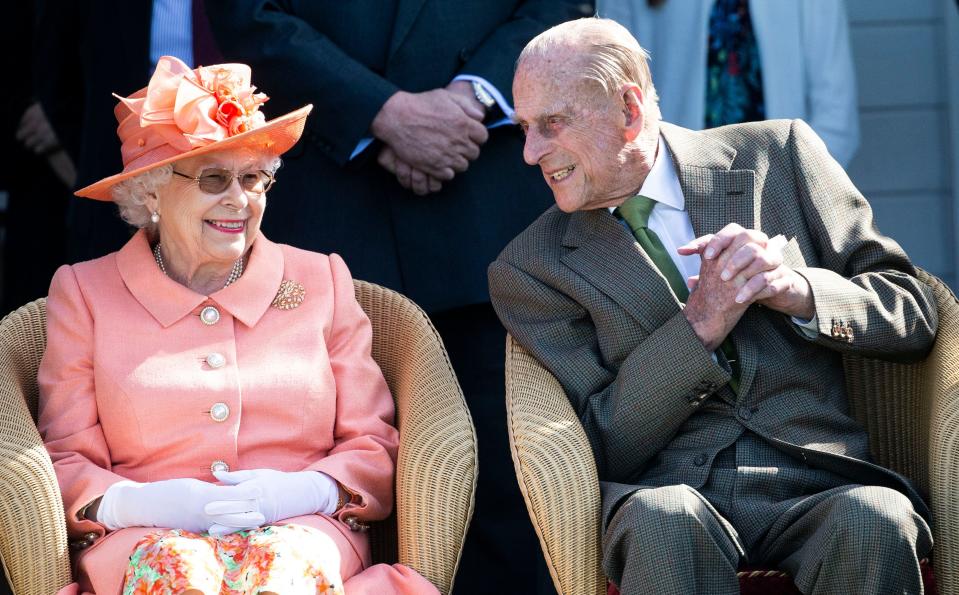The monarchy is not compatible with a fully democratic society

Guests of honour: the Queen and the Duke of Edinburgh
(David Hartley/Shutterstock)With regard to Sunday’s editorial (‘As we pay our respects to Prince Philip, we should ask what kind of monarchy we want’), I would have to disagree with the view that an hereditary monarchy is compatible with a fully democratic society.
The existence of the hereditary principle at the “top” of society acts as justification for the many other inequalities which exist throughout the country. An unelected second chamber of parliament is just one example, as is the fact that the public school system, attended by a small minority of the population, continues to supply a disproportionate number of leading figures in business, politics and the arts.
It is very difficult to challenge these and other distortions in a country which continues to accept and perpetuate a monarchical system.
Alan Brown
Wirral
BBC the behemoth
I was amused to read that the BBC had set up an online page so that people could make complaints about its coverage of Prince Philip’s death (‘Too much? BBC gets complaints over Prince Philip coverage’, 10 April).
Reading further, I found out that, apparently, the BBC had cancelled much of its scheduling for Saturday, as well as Friday. It was only then that it dawned on me: having watched Bridgerton, followed by 60 Days in Clark County Jail, on Netflix, I stopped watching much on the BBC a long time ago.
If someone like myself, in my mid 50s, finds the BBC irrelevant, what is the future for this behemoth?
Tony Beck
Nottingham
A royal bloke – and much better for it
Prince Philip’s passing marks the end of male values little regarded in this age of snowflakes and safe spaces: duty, self-sacrifice, hard work and dedication allied to a cheerful, unapologetic masculinity now held to be toxic by the bien pensant.
His inability to suffer fools gladly, to put his foot in it and his love of dangerous sports were a world away from a generation of undergraduates who need precautionary trigger warnings to “protect their mental health” before they read Shakespeare.
His wife became Queen at the age of 25 because of the spinelessness of her uncle Edward VIII who turned his back on family duty for an empty, frivolous life with his American divorcee, so Elizabeth knew the damage weak, selfish men can do.
In contrast to the wet-eyed self-indulgence of uncle Edward or the empty gestures and virtue signalling of today’s hand-wringing eunuchs, Philip had a steely gaze, dynamism and charisma. He was an unequivocal success as the “Royal Bloke”.
Rev Dr John Cameron
St Andrews
Vaccine passport conundrum
Despite a majority in favour of some form of “vaccine passport”, if they are introduced, they must be done with care.
Will they only be introduced after everyone has been offered a vaccine? Or will younger persons face restrictions because they cannot produce a certificate? What about foreign residents? How will we ensure that those who are unable to reach a vaccine hub – for example, if housebound – are still able to use public services and, indeed, get a vaccine if they want one, with or without certification?
What form will they take? How will people without a mobile phone be certified? If a mobile app is deployed, how will a person’s data be protected? With paper versions, how will venues be able to ensure the certified person is the one actually showing the pass? How will we protect against forgeries?
If a variant arises that escapes the vaccines – such as the South Africa variant, which shows signs of doing so – how will we change our behaviour? How sure are we at present that vaccines protect against long Covid?
Social distancing, mask wearing and hand washing remain proven techniques for helping to prevent the spread of Covid. Wherever possible, shouldn’t these stay in place even with certification? And if, despite vaccination, a third wave emerges, how will certification work? Alongside, or in place of, greater restrictions?
Finally, are we going to retain this as a form of ID card after the end of the pandemic, even if, for example, Covid becomes less serious than seasonal flu?
Ian Henderson
Norwich
Being Boris
Boris is Boris. Leave him alone. He has guided us through Brexit, while the EU is still trying to make trouble. Regarding his handling of Covid, Boris is not a doctor, nor a magician, nor a wizard. He has to take advice from “medical advisers” and scientists, then discussed suggestions with the cabinet.
I think he is doing a much better job than any other prime minister for years. So he has a funny haircut – so what? People these days are too busy picking holes in other people and don’t see faults in themselves.
We are far better off than the rest of Europe and many countries in the world. How do I know? I have lived in four.
E. Christe
Holmfirth
Read More
Joe Biden comments on passing of Prince Philip
Johnson was a shabby embarrassment paying tribute to Prince Philip

 Yahoo Finance
Yahoo Finance 